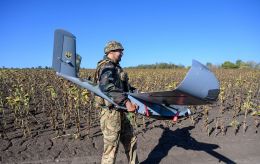Not unlimited: Why Russia can't fight for years, or when Putin will run out of people
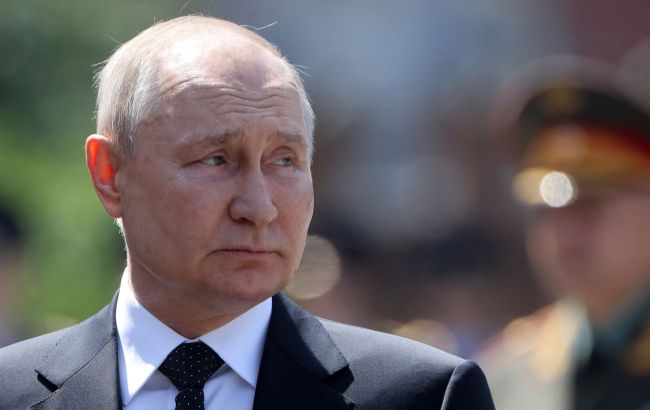 Russian dictator Vladimir Putin (Getty Images)
Russian dictator Vladimir Putin (Getty Images)
The Russian economy is not as strong as the Kremlin portrays it to be. This RBC-Ukraine analysis examines the factors contributing to Russia's current state, how Moscow has shifted from mobilization to "buying" soldiers, and how long the country can continue fighting at such a scale.
Russia has been attempting to capture Ukraine for two and a half years, expending vast amounts of money and personnel. During this period, the West has imposed unprecedented sanctions on Moscow, while Ukraine has received hundreds of units of modern and powerful weaponry.
However, Russia's economy, built around gas and oil exports, has proven resilient. The "sanctions fist" has not managed to create a significant breach that would make the Kremlin consider ending the war. Nonetheless, cracks have appeared. Over the years of the major conflict, Russia has had to dip into its reserves and deplete them, manually support the rapidly falling ruble, and visit pariah states for friendly visits, begging for ammunition.
Russia's wartime economy
On the eve of the Swiss peace summit organized by Ukraine, Russian dictator Vladimir Putin made a proposal. Kyiv must cede four regions to him, including territories not currently occupied, renounce the idea of joining NATO, and conduct "demilitarization and denazification." Additionally, Ukraine's allies must lift all sanctions from Russia. Allegedly, Moscow would then be ready for a ceasefire and peace talks. Three weeks after this proposal, the Russian army carried out one of the largest bombardments of Ukraine and Kyiv, striking the children's hospital Okhmatdyt with a missile.
Putin's conditions for even starting "peace talks" without withdrawing his troops are unattainable, and it is unlikely that Moscow does not realize this. Such statements are probably not even addressed to Ukraine, which the Kremlin considers non-negotiable. It is an attempt to provide arguments for their influence agents in the West to discuss with those who support Kyiv – claiming that Russia has long been ready for peace, but it is Ukraine that is not.
On the other hand, these statements, which do not reflect a real desire to sit at the negotiating table (as evidenced by the large-scale shelling), likely indicate Putin's confidence that he can continue the war for a long time. The Kremlin has evidently decided to wage a war of attrition and is preparing significant reinforcements for this. A stable economy is the main pillar of a war of attrition. Sanctions, no matter how severe, should not destroy it.
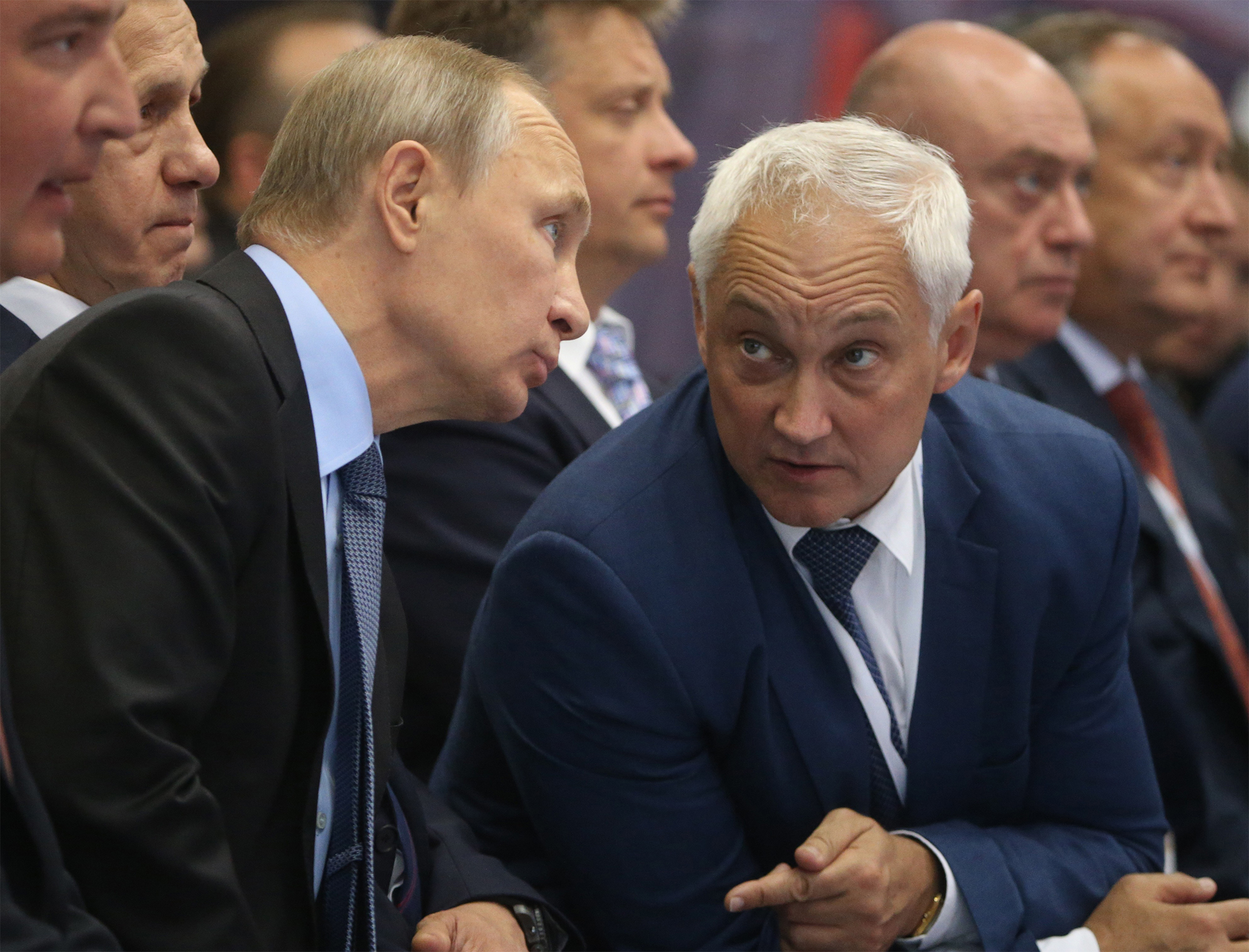
Vladimir Putin and Andrey Belousov (photo: Getty Images)
For some time, Russia held on because its monolithic economy was difficult to destabilize. Moscow dipped into its reserves, with Central Bank of Russia head Elvira Nabiullina manually keeping the ruble afloat, and a shadow fleet of Russian oil roamed the world's oceans. But, having decided to play the long game, the Kremlin put the economy on a war footing, practically centering it around the military-industrial complex. The idea is not bad, especially since many Russian oligarchs, frightened by sanctions, have repatriated their capital and are investing in military production because they have nowhere else to invest. However, this cannot last forever, and other problems are emerging, such as a labor shortage, notes Russian political scientist Ivan Preobrazhensky.
"Military production does not provide any significant economic growth. Accordingly, today we can say that the Russian economy is overheating. And there is a shortage of labor. A few days ago, Novaya Gazeta.Europe published a study showing that the Russian labor market has already lost more than 2% of its workforce due to the front and emigration. And the labor shortage is only growing," Preobrazhensky commented to RBC-Ukraine.
For the economy to firmly stand on a war footing, it needs to be rid of corruption or at least minimize it. This is why Putin removed Defense Minister Sergei Shoigu and appointed economist Andrey Belousov. What plan Belousov proposed to the Russian dictator is unknown, but it probably includes some roadmap for the Special Military Operation. Therefore, today's Russian economy, centered around the military-industrial complex, appears strong due to increased military spending. Defense spending this year accounted for 30% of the Russian budget and 6% of GDP. However, this militarization also has a downside.
The Kremlin's course to reduce dependence on the dollar and external factors has devalued the ruble and increased the cost of imports. Active recruitment for the war and the opening of military factories have funneled money into small towns. A source in the Defense Forces explained that this year, the Kremlin set a goal to recruit 385,000 soldiers. And they will, according to the interlocutor, achieve this plan. Every month, about 30,000 people in Russia sign contracts for the war.
On the other hand, this has increased inflation to 8% and reduced unemployment to 1.8%. The large one-time payments that regions make for signing war contracts are becoming a burden and no longer seem like a good idea. Another signal that things are not well in Russia is the massive increase in taxes – on salaries, personal income, and business profits.
The possibilities for expanding production are also limited. According to sources in the Defense Forces, Moscow has been able to increase production of major types of missiles by 10-15% compared to 2023. Quantitatively, this is measured in single digits. The production of Shahed drones remains at last year's levels. According to RBC-Ukraine, this means an average of 250 such UAVs per month.
Many components are still difficult to obtain due to international sanctions. Hence, the focus is on repairing and restoring old equipment. As Russian depots are depleted, the production of genuinely new armored vehicles or artillery will decrease. According to research by The Economist, Soviet equipment stocks in Russia are already running out, especially regarding armor and artillery barrels. According to experts cited by journalists, the critical exhaustion point in Russia will be reached by the second half of 2025.
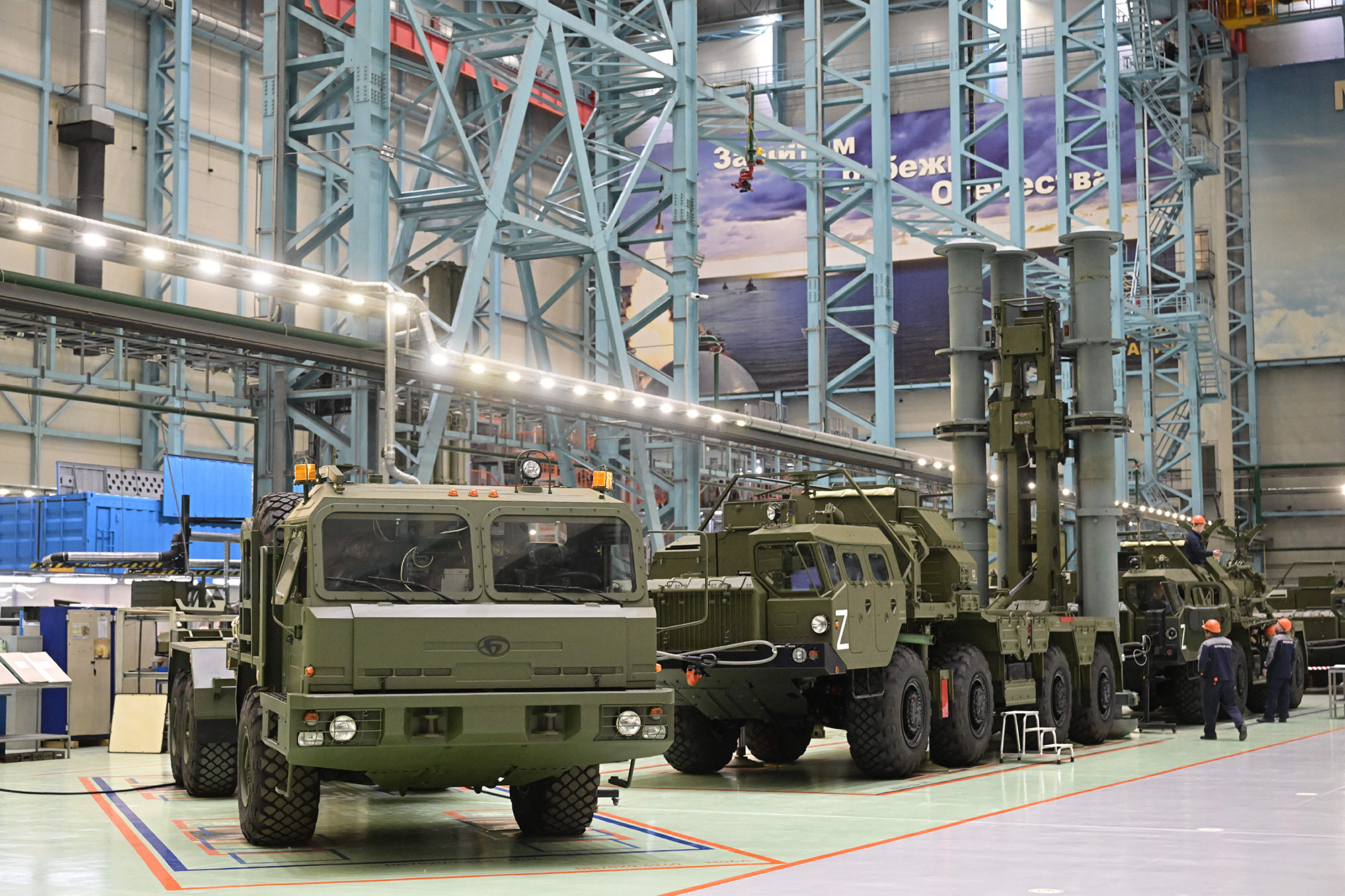
JSC Concern VKO Almaz-Antey (photo: Getty Images)
The Russian military-industrial complex, despite its active development, produces goods that are ultimately consumed in the war and offer no long-term economic benefits. Therefore, the military industry is not the cornerstone of Russia's economy—it remains afloat thanks to the export of oil and petroleum products. Additional revenue comes from the sale of diamonds, fertilizers, and timber.
Today, the main task for Belousov, the "accountant," is to reduce production costs, which can be achieved through the old-fashioned war order system—a method proven effective both during Soviet times and under former Defense Minister Anatoly Serdyukov. In Russia, Serdyukov is remembered for his active attempts to combat corruption in the army, which ultimately led to his dismissal.
"The Russian military system operates essentially the same way as the Soviet one. It is not market-based. Factories set prices almost arbitrarily for the Ministry of Defense, prices change several times during production, and deadlines are hardly ever met. As soon as there is a system, real accountability, and a contract that is somehow adhered to, everything will fall into place," said Preobrazhensky.
However, the economy cannot remain perpetually within the orbit of the military-industrial complex and will eventually start to collapse. The Kremlin, understanding this, likely hopes that this will happen later rather than sooner. And judging by the resilience of the Russian economy, they might be right.
Mobilization or 'buying' people in Russia
In Russia, they try to avoid the word "mobilization," and recently there hasn't been any real mobilization to speak of. Instead, it is more about buying soldiers for the Russian army. For instance, today a one-time payment to a Russian who decides to join the army is about 1.7 million rubles, or $20,000. For most of those who agree, these are sums they could never have dreamed of.
"The money the state is currently willing to pay is equivalent to what an average Russian man from a remote area or a lumpenized city would earn for his family over approximately 60 years, assuming he isn't killed. Essentially, this is a deal with the devil, where Russian families sell the lives of their men to get money that these men would never have been able to earn otherwise," said Preobrazhensky.
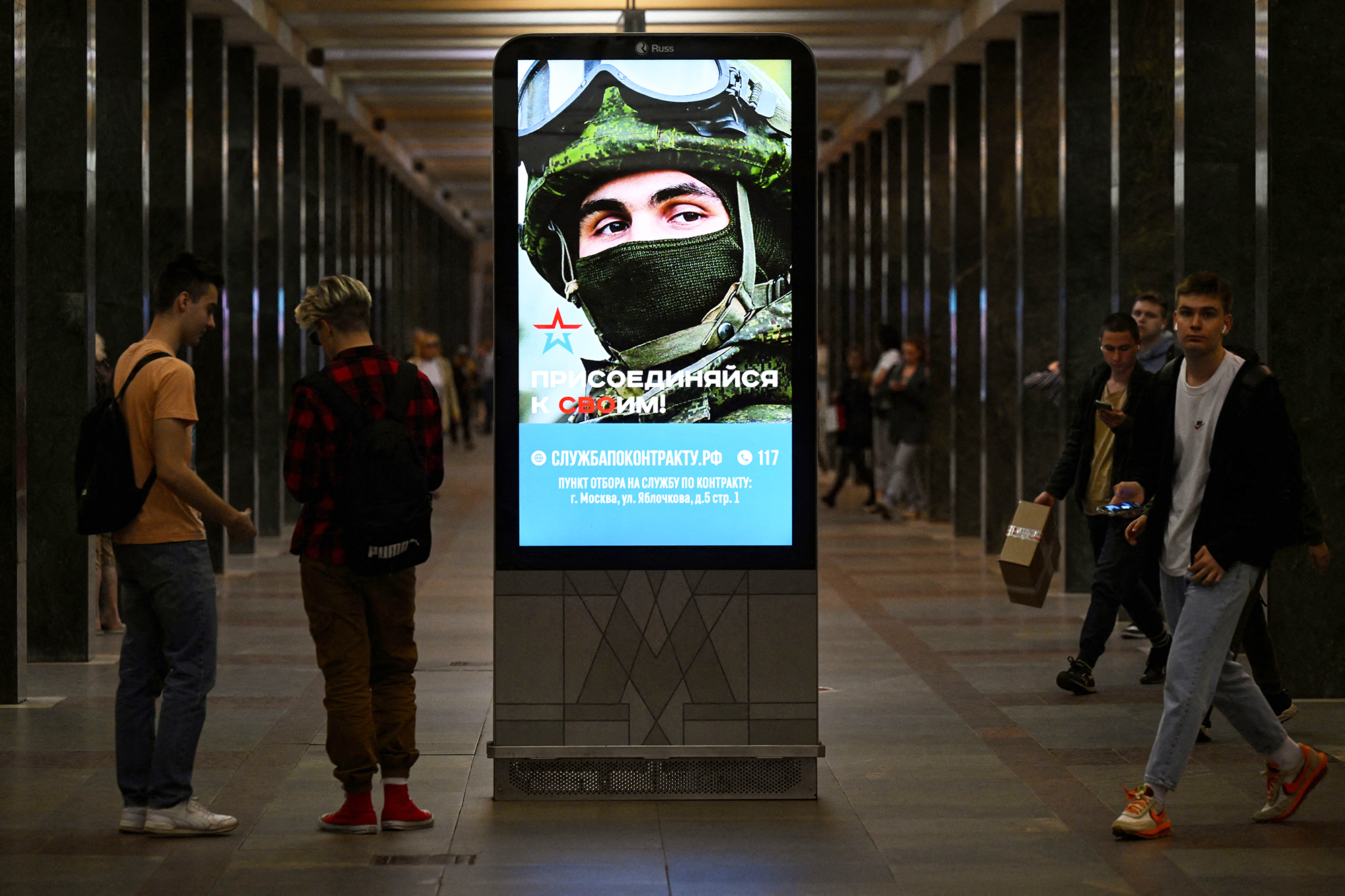
Conscription in the Moscow metro (photo: Getty Images)
Probably due to the small influx of willing participants, the Kremlin even came up with a "bring a friend" scheme—bringing in an additional 50-100 thousand rubles, varying depending on the region's poverty level. Overall, the state spends billions on maintaining such an army, which is motivated solely by pay. A study by the "Re:Russia" project showed that the Kremlin has already spent over half a trillion rubles on soldier payments. Thus, a Russian soldier costs the Russian treasury as much as a French or American soldier.
The human resources in the regions are also finite and will eventually run out. According to demographers, this will happen in two years. It's not that people will literally run out—more likely those who could be bought. So far, Putin has avoided large-scale mobilization in major cities like Moscow or St. Petersburg, but this won't last long, asserts political figure Garry Kasparov.
"I believe that major cities are generally bypassed by active mobilization measures. The emphasis is on prisoners, migrants, depressive regions, and national republics. Moscow and St. Petersburg are yet to truly feel the burden of the war. But we are approaching a point where mobilization and recruitment for the army will affect these cities as well," Kasparov said in a comment to RBC-Ukraine.
For now, Moscow residents are offered contracts with the army for a one-time payment of nearly 2 million rubles, as recently stated by Moscow Mayor Sergei Sobyanin. But to avoid upsetting public sentiment in major cities, Putin currently relies on resources from regions and those countries whose citizens are willing to fight for a few thousand dollars a month. For example, Africans, Nepalis, Sri Lankans, or Indians. The Ukrainian army periodically captures soldiers from African or Asian countries—they tell practically the same story of how they wanted to earn money but ended up as cannon fodder. Their contribution is likely not insignificant; otherwise, politicians from certain countries wouldn't ask Putin to stop buying their people. Such a statement was made in Nepal, and the Prime Minister of India mentioned this during a visit to Moscow.
Africa is a separate field of inexhaustible resources for Moscow. Russia continues to develop and strengthen its influence on the African continent. Recently, Russia signed an agreement with the Republic of Congo, allowing it to become a technological port hub for products from the Democratic Republic of Congo.
"Russian technological companies are already entering, and essentially, if speaking bluntly, the Belgian king left (Leopold II, who was involved in the colonization of Congo), and now Putin wants to buy 'black wood' from there for his front. Basically, he is trying to revive the slave trade. If generalizing, Russia is engaging in slave trade in Africa to buy enough soldiers," said Preobrazhensky.
Putin also has a potential resource in Belarus. Today, the Russian dictator is held back from involving the Belarusian army by China. Alexander Lukashenko went to Xi Jinping and joined the SCO (Shanghai Cooperation Organization) primarily to hide behind China's back and point the finger at Putin. But if the need for human resources on the front becomes critical, it is unlikely that Moscow will be deterred by Beijing's tugs.
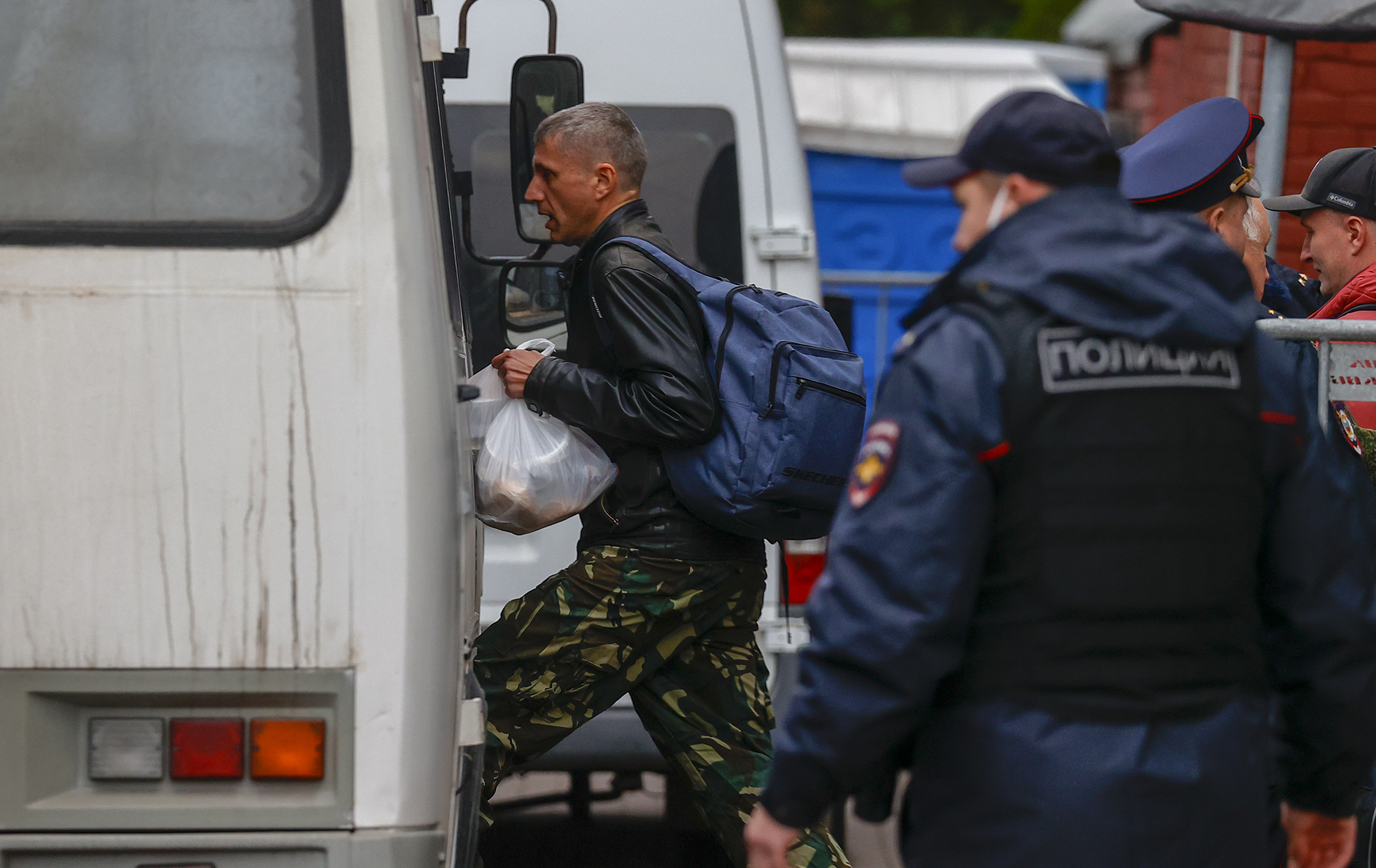
Mobilization in Russia (photo: Getty Images)
Finally, there are the Ukrainian territories occupied by Russia. Today, the occupiers are conducting mobilization measures there, forcing men to first take Russian documents and then join the Russian army. It is clear that there are no sentiments towards this mobilization resource—no money is promised, they are equipped with whatever is available, and then sent to the front lines.
In the scheme of buying people for the front, Russia faces the same problem as with its economy in general—a constant search for money. Reducing expenses is impossible, as if someone is reluctant to go for 100,000 rubles, they certainly won't agree to 15,000. Accordingly, the sum for buying soldiers has to increase. Currently, regions are responsible for finding soldiers for the army, regularly reporting this to the top. However, the money for soldiers also comes from the federal budget, and its reserves are far from endless.
Internal Situation in Russia—Putin, 'hawks,' and 'technocrats'
According to RBC-Ukraine sources, any colonial war must be relatively quick. If prolonged, it risks losing its legitimacy and support, primarily among the elites. By betting on a long war, Putin hopes the West will tire and stop helping Ukraine. Otherwise, the destructive processes occurring in the Russian economy will affect everyone, says Russian political scientist Abbas Gallyamov, who has been living in Israel in recent years.
"Russia's war against Ukraine is rapidly losing its legitimacy. It is becoming an increasingly irritating factor, and if Putin doesn't end it, at some point, he stands a real chance of losing power. And if he manages to die in time, his successor will face a very tough choice: either quickly end the war or lose power. I think Putin and his entourage understand this well," Gallyamov said in an interview with RBC-Ukraine.
This is another reason why Putin has started talking about negotiations—he wants to convince primarily Russian society that he is "for peace" and is fighting out of necessity. After all, at some point, the Russian elites, tired of the war, might conclude that it needs to end, resources are being depleted, and if the Kremlin dictator doesn't want to end the war, then his time is up.
The elites themselves, according to Gallyamov, are already dissatisfied with what is happening. Now, apart from the KGBists who want to fight as long as the economy and a frightened society allow, other factions have begun to emerge in the pro-government circles—the so-called "hawks" and "technocrats." The former advocate for total war—full mobilization, nationalization of the economy, and a switch to a war footing. The latter want to minimize expenses—call the war a special military operation, allocate a specific budget for it, and pretend that this is enough. The "technocrats" do not aim for global goals like capturing Kyiv or advancing to the borders of Poland. The "hawks" want to capture everything they can.
The "technocrats" can be grouped around Putin's daughter, Katerina Tikhonova. This is the so-called second generation of Putin's elite—in the 2000s, they were still quite young to influence anything, but today they have enough levers to claim power.
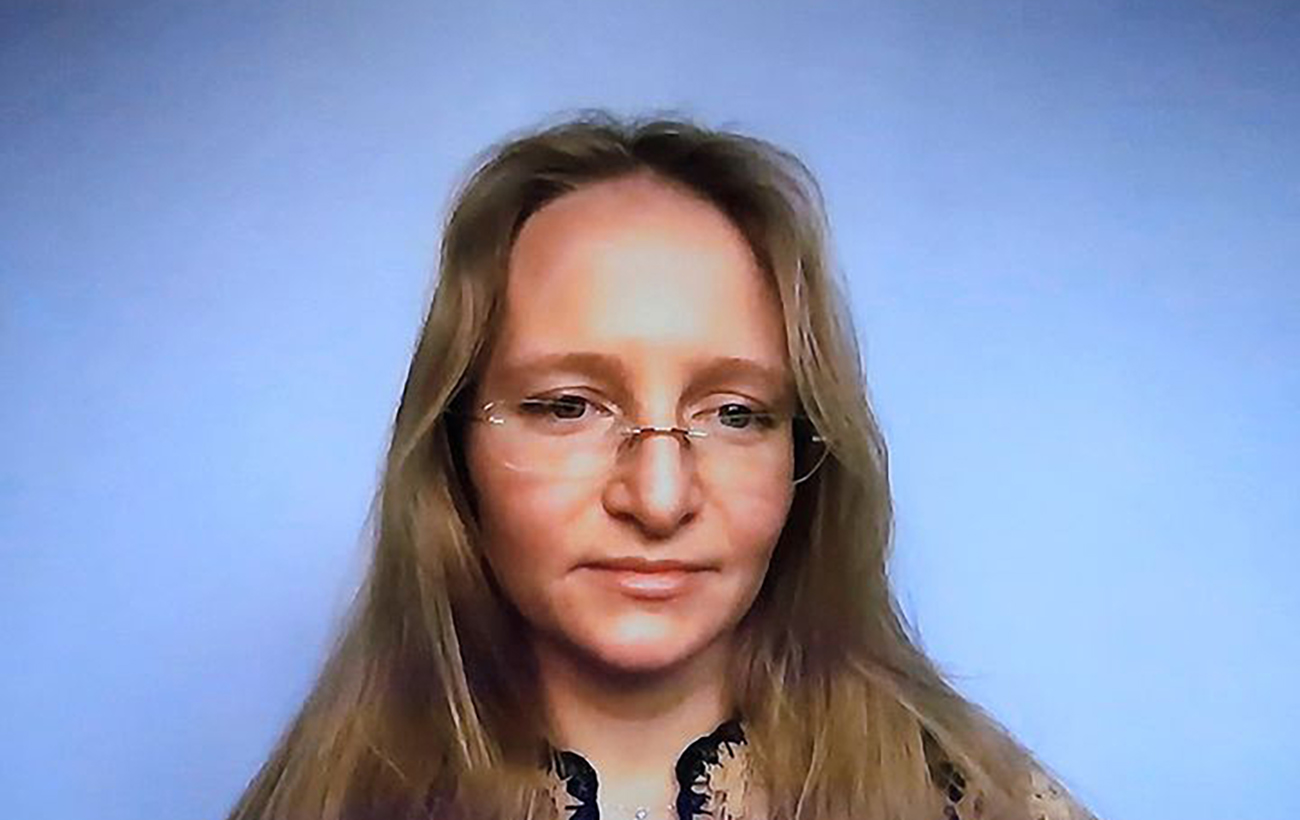
Katerina Tikhonova (photo: screenshot from her video speech)
"These people are starting to oppose the first generation that came with Putin 25 years ago—all these Kovalchuks, Rotenbergs, and Patrushevs. They hold them responsible for the inefficiency and corruption of the system, its inability to handle Ukraine, and overcome the effects of sanctions, etc. However, they are unconditionally loyal to Putin," added Gallyamov.
The "Tikhonovites" are seeking their strategy and currently lean towards making the economy entirely state-controlled. The "hawks" also talk about this, but for them, it is more a quick way to find resources for the next powerful breakthrough at the front. For the "Tikhonovites," it is more of an attempt to restore public trust—not to steal on the same scale and to overcome the crisis of legitimacy. In the long run, if the "Tikhonovites" come to power, they are unlikely to continue the war—for them, it makes no sense.
"The war is needed by Putin to prove how cool he is, and after he leaves, they won't need it. Not even Katerina. Why burn resources in vain and turn society against oneself? Yes, they are all loyal now. But since they didn't start all this, they will use any argument to say that the war has dragged on too long and needs to end," said the political expert.
Kasparov also divides the Russian elites into two groups. The first advocates for continuing the war in its large-scale form, and the second wants to consolidate the existing territories and start developing them.
"The main contradiction between them is in the way of distributing funds. But there is no fundamental difference regarding Ukraine. Ukraine is not on the political map in Putin's Russia. They have questions about the methods of how to do it more easily," says Kasparov.
As for a revolution in society itself, it is not yet worth talking about—Russians are ready to take to the streets only on issues for which they will not be imprisoned or beaten with batons. An example is the recent protests over power outages in certain cities. For most Russians, the war is an area in which they have no competence, so it is easier for them to call themselves "apolitical" and pretend that nothing is happening.
***
Several informed RBC-Ukraine sources in Ukrainian military circles believe that the conditions necessary for ending the war have not yet developed, neither from Ukraine's side nor from Russia's.
Russia will face its first real difficulties from 2026, forecasts one source. Even if it were possible to sit Putin at the negotiating table now with a more or less compromise scenario, this would not be the end, but only a pause.
Russia—its economy and resources—has not yet reached the point after which it would be difficult to recover and rise to start a new wave of aggression against Ukraine. Many interviewed interlocutors are confident that if negotiations with Putin are started now, Moscow would need only a year to recover, prepare, and attack Ukraine with renewed force.

